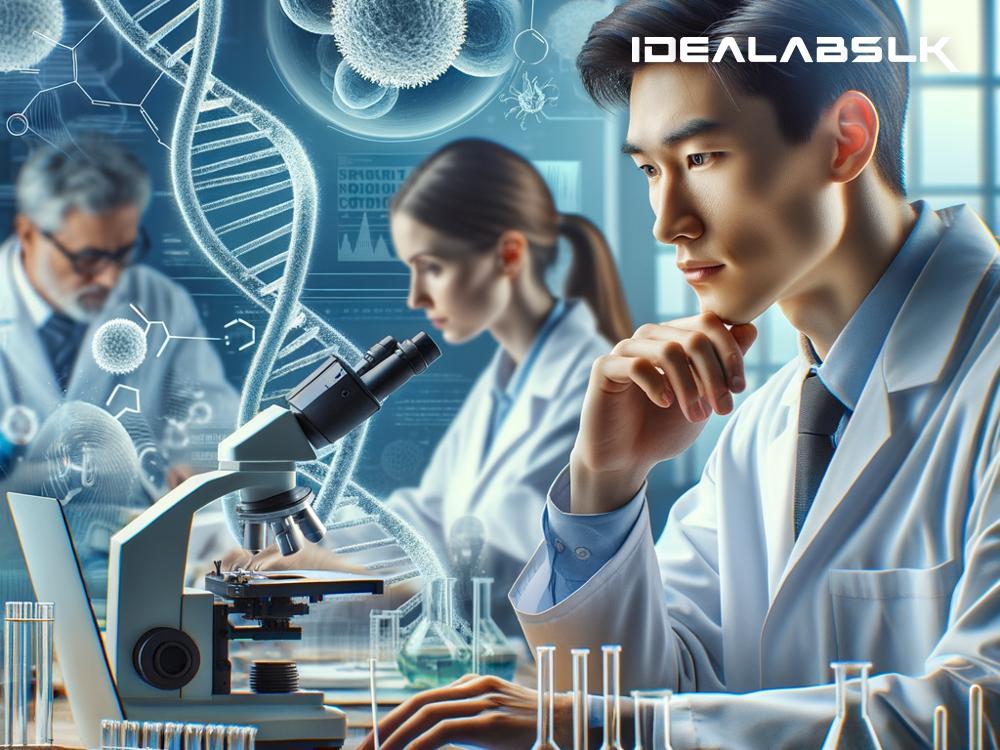The Beginnings of Biotechnology: A Journey Through Time
Biotechnology might sound like a relatively new term, associated with cutting-edge research in genetics and medicine, but its roots go much deeper than you might think. This fascinating journey begins not decades, but centuries ago, intertwining with the evolution of human civilization itself. So, how did biotechnology research originate, and what landmarks define its progress? Let's dive into a simple exploration of its origins and understand how this science has become a cornerstone of modern innovation.
The Early Stages
The story of biotechnology starts in a time when the concepts of genetics, microorganisms, or DNA were completely unknown. Without realizing it, ancient civilizations were the first biotechnologists. They selectively bred animals to achieve stronger work animals or gentler pets and manipulated plants to produce higher yields or tastier fruits. However, it was the art of fermentation that truly marked humanity's initial foray into biotechnology. By 6000 BC, societies in what is now modern-day Iran were already brewing beer. Similarly, the production of bread, cheese, and wine by ancient Egyptians, Greeks, and Romans involved microbial processes that are fundamental to biotechnology.
The Discovery Era
Fast forward to the 17th century, when the invention of the microscope opened a new world of possibilities. Scientists like Antonie van Leeuwenhoek began to uncover the microscopic realm, discovering bacteria and the wide diversity of life invisible to the naked eye. This period laid the groundwork for the development of microbiology, a cornerstone of biotechnology.
By the 19th century, two pivotal figures emerged: Louis Pasteur and Gregor Mendel. Pasteur, renowned for his work on vaccines and the pasteurization process, showed how specific microorganisms caused fermentation and disease, reinforcing the germ theory of diseases. Mendel, on the other hand, discovered inheritance patterns in pea plants, outlining the basic principles of genetics. Although Mendel's work was initially overlooked, it later became fundamental to genetic research, directly contributing to the field of biotechnology.
The Birth of Modern Biotechnology
The 20th century witnessed explosive growth in biological sciences, setting the stage for the modern era of biotechnology. In 1953, James Watson and Francis Crick revealed the double-helix structure of DNA, unlocking the secrets of genes and their roles in heredity. This discovery was monumental, laying the foundational knowledge for genetic engineering.
The development of recombinant DNA technology in the 1970s marked the true beginning of contemporary biotechnology. Scientists Herbert Boyer and Stanley Cohen engineered bacteria by introducing foreign DNA, proving that genetically modified organisms (GMOs) were possible. This breakthrough paved the way for the production of insulin, growth hormones, and other therapeutic proteins through biotechnological methods.
The Era of Genomics and Beyond
The completion of the Human Genome Project in 2003 was a landmark achievement, mapping all the genes in the human genome. This project exemplified the transition into the genomics era, where understanding the genetic makeup of organisms became crucial for advancements in medicine, agriculture, and environmental science.
Today, biotechnology encompasses a vast array of disciplines, including genomics, recombinant gene techniques, applied immunology, and development of pharmaceutical therapies and diagnostic tests. The field continues to evolve, with cutting-edge research areas like CRISPR-Cas9, a gene-editing technology that has revolutionized genetic engineering by allowing precise modifications to DNA at specific locations.
The Impact and Future of Biotechnology
Biotechnology's potential to improve health, extend lifespan, increase food production, and solve environmental issues is immense. Its applications range from developing drought-resistant crops and biofuels to pioneering personalized medicine and treatments for previously incurable diseases. As we look to the future, the ethical considerations and societal impacts of biotechnology research remain hot topics, guiding the responsible development and use of this powerful science.
In Conclusion
From the first steps taken by ancient brewers to the revolutionary discovery of DNA's structure and beyond, the origins of biotechnology are rich with innovation and discovery. This journey showcases human curiosity and our relentless pursuit of knowledge, driving advancements that have fundamentally changed our world. As biotechnology research continues to forge new frontiers, it holds the promise of addressing some of the most pressing challenges facing humanity today, heralding a future where the possibilities are as vast as our collective imagination.

